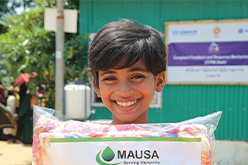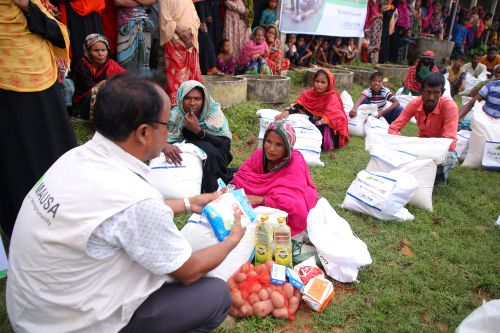Livelihood and Economic Empowerment
GUSS recognizes the importance of sustainable livelihoods in building resilient communities. The organisation has undertaken numerous projects to empower individuals and communities economically.
Among other projects, the Sustainable Livelihood Projects in Durgapur, Rajshahi, exemplify GUSS’s commitment to women empowerment. Through these projects, around 500 rural women have been trained in duck farming, each receiving ducklings, along with the construction of duck houses and financial support for food, vaccination, and treatment. Additionally, the organisation supported 50 marginalised individuals with sewing machines and cash grants, fostering self-reliance and self-sufficiency.








GUSS’s projects are strategically designed to provide tools for communities to sustain themselves, not just during emergencies but also in the long term. By investing in livelihood opportunities and skill development, the organisation aims to break the cycle of dependency and enable individuals to take control of their lives.
Volunteers play a crucial role in GUSS’s humanitarian efforts, contributing to various activities such as cleaning sewage, waste transportation, maintenance, repair, and providing physical support for events. Their involvement extends to awareness sessions, both in group and household settings, emphasising the organisation’s commitment to fostering positive relationships with beneficiaries.
These volunteers receive monthly stipends for their efforts, encouraging them to continue carrying out proper work, even beyond the project’s completion. For the WASH assistance project in Bhasan Char, FDMN volunteers were even recruited for the interactive popular theatre show, both as actors as well as musical performers.
In 2022, GUSS received the registration from the MRA to operate its microfinance programs in rural communities, especially targeting women. They will receive support in the form of loans, thereby increasing their income and in turn, raising their sense of empowerment and social standing. Already 400 women have received microcredit loans to carry out their income generating activities.This will not only ensure the empowerment of women but also complement the expenses in relation to education and health of their family members.














